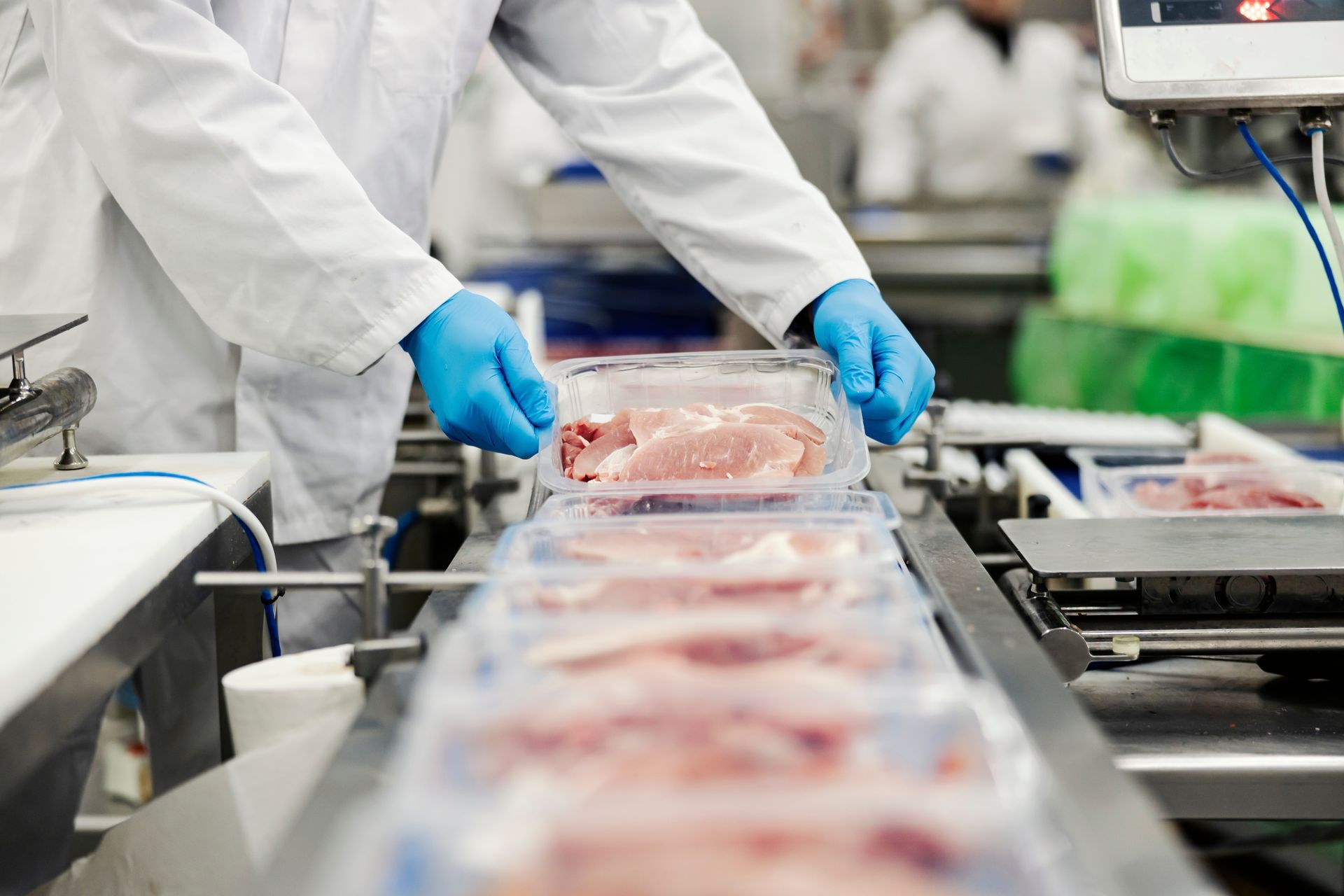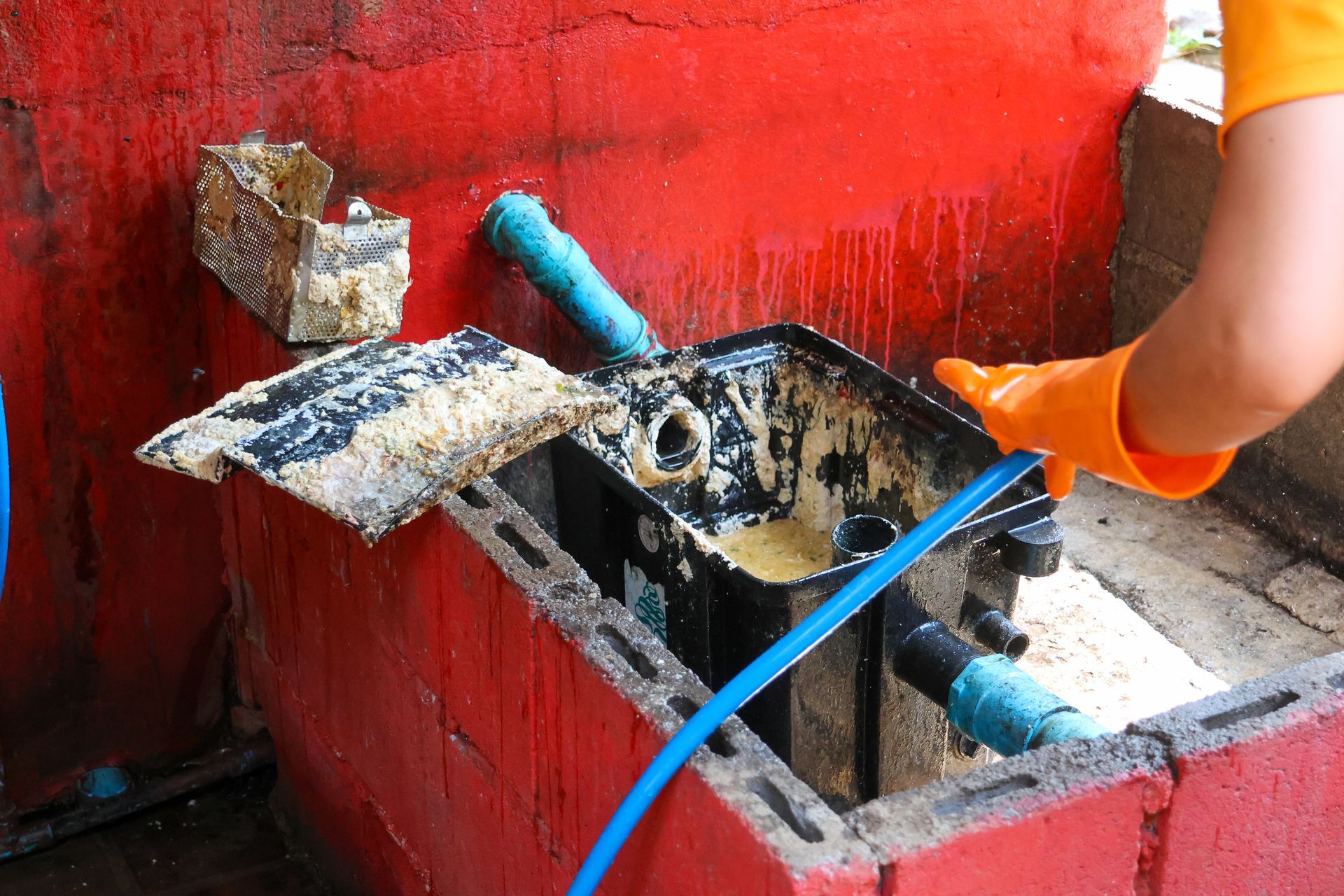What Types of Grease Interceptors and FOG Capturing Systems Are Needed in Meatpacking and Processing Facilities?

Grease traps may work well in small commercial kitchens, but meatpacking and processing facilities operate on a completely different scale. From butchering to rendering and packaging, these facilities generate large volumes of wastewater loaded with animal fats, blood, bone particles and other solids. If not properly managed, these waste streams can clog pipes, damage sewer systems and result in serious fines for non-compliance.
Unlike vegetable-based oils or emulsified fats from snack factories, animal fats behave very differently and require specialized equipment to manage them.
The Unique Challenge of Animal Fats
Animal fats solidify at much higher temperatures than vegetable oils. While many plant-based oils stay liquid in cooler wastewater, animal fats begin to congeal quickly as they move through pipes. This means that even short distances between a drain and an interceptor can result in grease buildup, leading to blockages and overflows.
In addition to solidifying more quickly, animal fats are often mixed with other dense organic waste like blood, tissue and bone fragments. This combination makes wastewater heavier, thicker and far more difficult to treat using standard grease traps.
Traditional Grease Traps Don’t Cut It
A conventional passive grease trap, typically found in restaurants or cafeterias, is designed to slow the flow of water long enough for grease to float to the top and solids to sink. But in high-volume meat processing operations, the sheer quantity and density of the waste can overwhelm these systems quickly. Passive traps can become clogged, require constant manual maintenance and often fail to meet local discharge standards.
To effectively manage waste from meatpacking, these facilities require a system designed for higher volume, heavier waste loads and complex solids separation.
Essential FOG Management Equipment for Meat Processing
1. Large-Capacity Gravity Grease Interceptors
Gravity grease interceptors (GGIs) are a step up from traditional traps and are built to handle significantly larger flow rates. They use a multi-chambered tank to separate grease and solids from wastewater. These interceptors are buried underground and sized based on peak flow volume and retention time.
For meatpacking operations, GGIs must be properly sized. This is not just for the volume of wastewater, but also for the density and composition of the waste. In many cases, these interceptors must be cleaned more frequently than in other industries due to the rapid accumulation of thick animal fat layers.
2. Solids Screening and Removal Systems
Before any wastewater even reaches the grease interceptor, meat processors should install solids screening systems. These can include bar screens, rotating drum screens or settling tanks that remove bone, cartilage, gristle and other solid particles. If these materials reach a grease trap or interceptor, they can clog the system and reduce separation efficiency.
Effective solids removal reduces the burden on downstream grease management systems and improves compliance with municipal pretreatment requirements.
3. Automatic Grease Removal Units (AGRUs)
In high-demand areas like cutting rooms, wash-down stations or kill floors, AGRUs provide an efficient way to handle FOG without frequent manual cleaning. These systems actively separate grease from wastewater and automatically deposit the recovered fats into a sealed container for disposal or recycling.
AGRUs reduce labor, lower risk of overflow and help maintain consistent performance even in facilities with multiple daily wash-downs.
4. Heated or Insulated Piping and Interceptors
Since animal fat solidifies so quickly, some meatpacking facilities use heated piping or insulated systems to keep wastewater temperatures high enough to prevent fat from hardening before it reaches the interceptor. Heated interceptors or inline grease separators are particularly helpful in colder climates or during winter months.
5. Flow Equalization and Surge Control
Meatpacking operations often create intermittent high-flow events, such as after sanitation crews clean down cutting areas. These flow surges can overwhelm grease interceptors if not managed correctly. Flow equalization tanks temporarily hold and slowly release wastewater to prevent hydraulic overload and allow grease and solids separators to work more effectively.
The Importance of Compliance and Scheduled Maintenance
Local wastewater authorities closely monitor meatpacking facilities due to their potential impact on municipal systems. Failing to install the right FOG and solids control systems or neglecting regular cleanouts can result in heavy penalties, emergency shutdowns and damage to public infrastructure.
Even with the best equipment, consistent maintenance schedules are key. Animal fats harden fast, and buildup can reduce system efficiency in a matter of days. Partnering with a trusted service provider ensures interceptors stay clean, equipment runs efficiently and your facility remains in compliance year-round.
Trust Southern Green Industries for Industrial-Grade Interceptor Maintenance Solutions in the Metro-Atlanta Area
Don’t risk downtime, fines or costly repairs. Contact Southern Green Industries today to schedule a site consultation or give us a call at (404) 419-6887 and let us help you maintain a cleaner, safer and compliant facility.
Recent Blog Posts
Contact us Today for a FREE Quote
We are committed to making grease trap cleaning and fryer oil recycling as clean and easy as possible. If you’d like to learn more about our services or get a quote, give us a call at (404) 419-6887.



